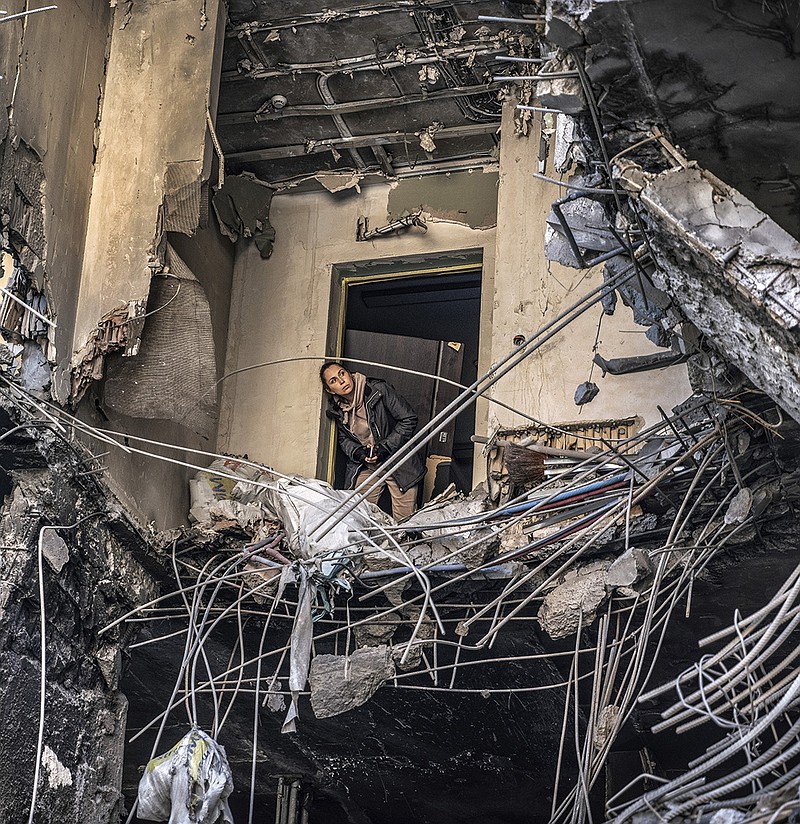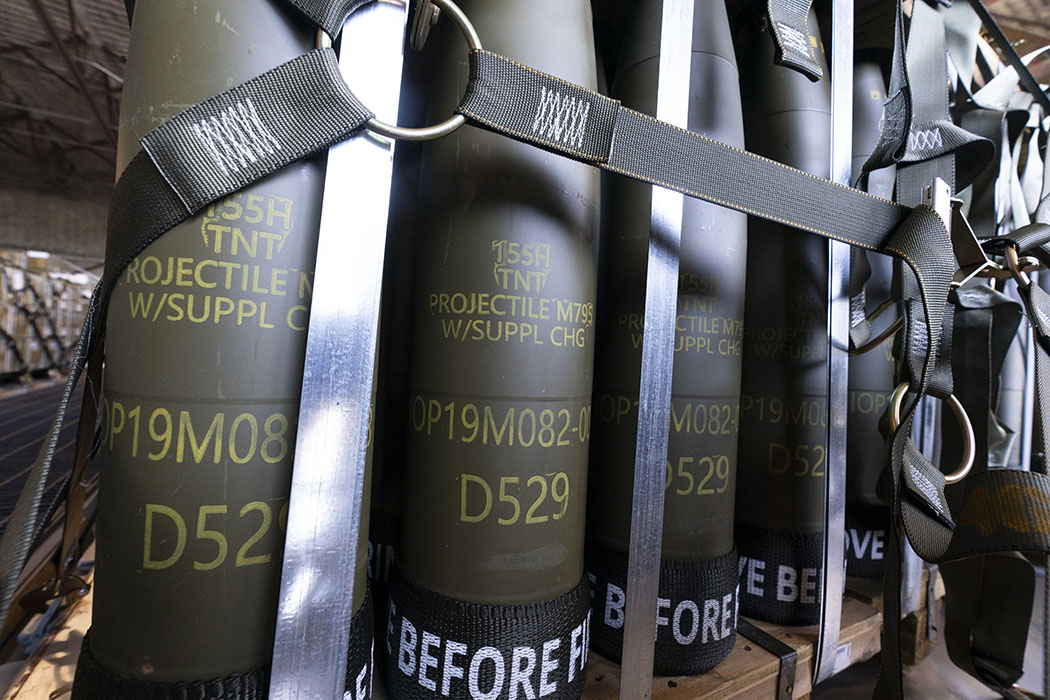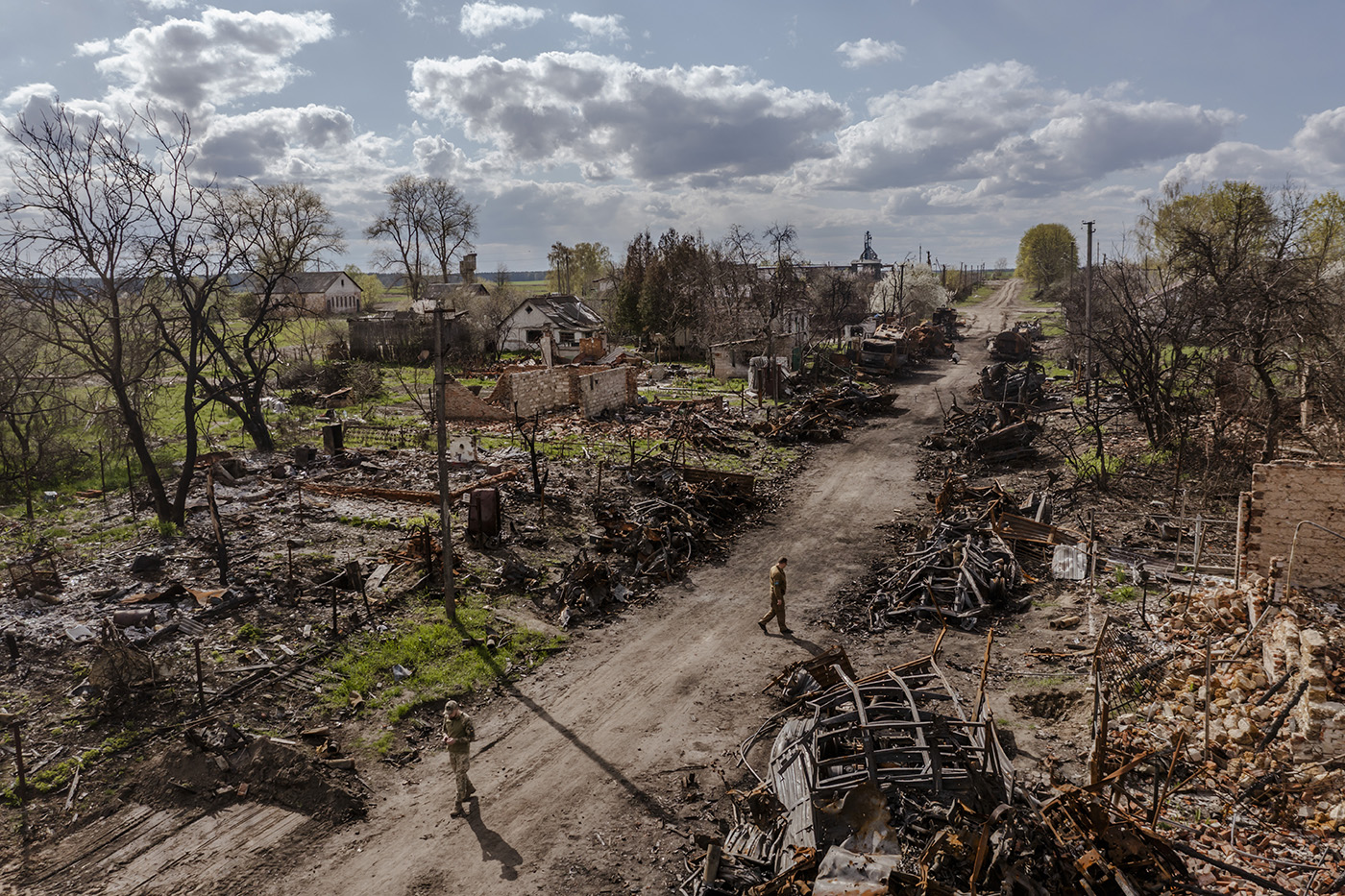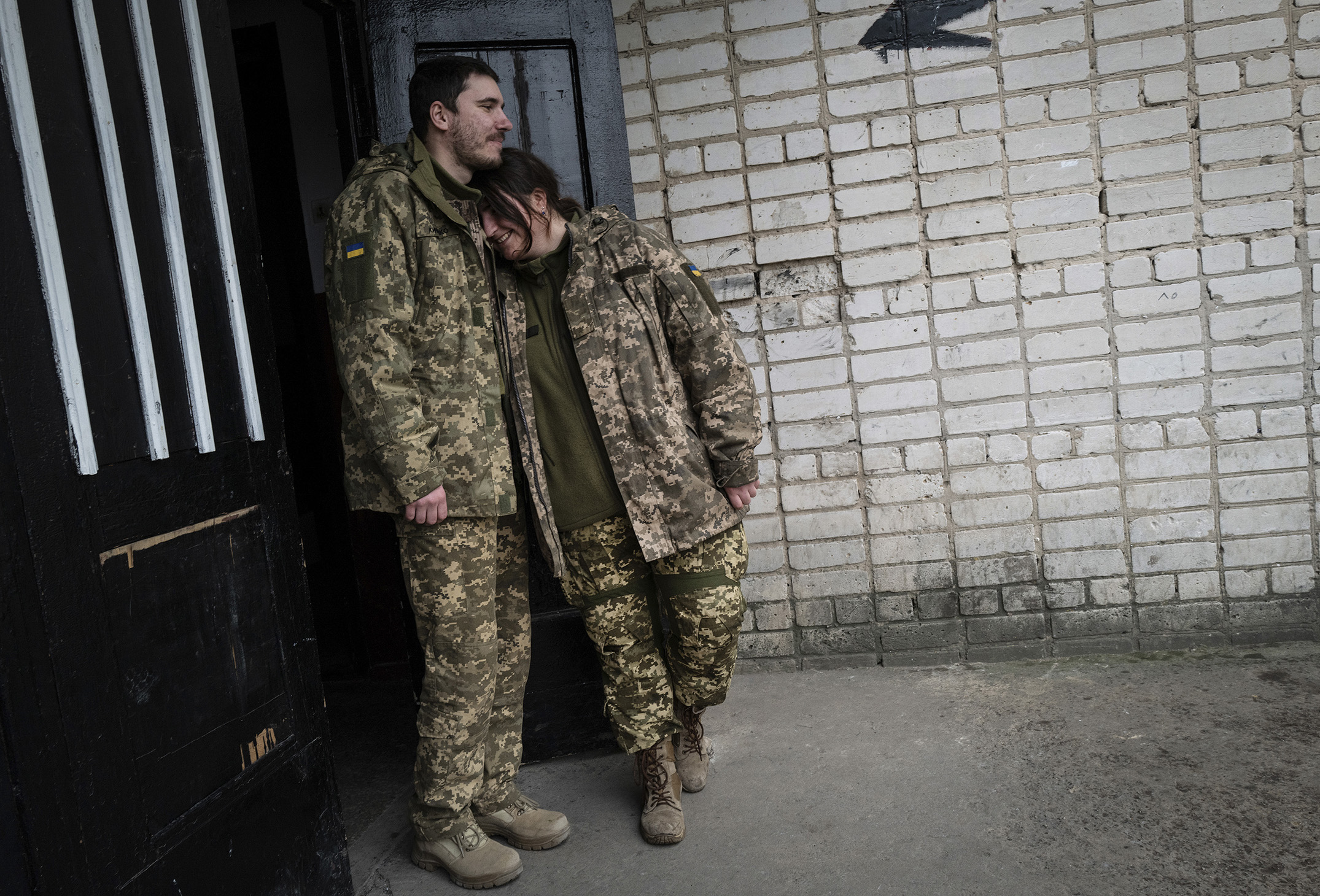BRUSSELS -- European Union countries are likely to approve a phased embargo on Russian oil as early as next week, officials say, sealing a measure that has divided the bloc's members and highlighted their dependence on Russian energy sources.
It has taken weeks for EU countries to agree on the contours of the measure, and talks will continue over the weekend before the European Commission, the bloc's executive arm, puts a finalized proposal on paper for EU ambassadors to approve. The ambassadors will meet Wednesday, and they expect to give their approval by the end of the next week, several EU officials and diplomats involved in the process say.
The diplomats and officials spoke on condition of anonymity because they were not authorized to speak publicly on the progress of the talks.
The oil embargo would be the biggest new step in the EU's sixth package of sanctions since Russia invaded Ukraine on Feb. 24. Officials said the package will include sanctions against Russia's biggest bank, Sberbank, which has so far been spared, as well as additional measures against high-profile Russians.
Barring a last-minute demand by Hungary, a country that is said to have dragged its feet, officials expect that the process should be completed without requiring an EU leaders meeting -- avoiding the time-consuming effort of calling all 27 heads of state to Brussels.
The embargo is likely to affect Russian oil transported by tankers more quickly than it would affect oil arriving by pipeline, which could take a matter of months. In both cases, however, it is likely that the bloc would allow its members to wind down existing contracts with Russian oil companies as it did with its coal ban, which was given four months to be fully put in place.
Germany's position has been critical in finalizing the new measure.
The country, the bloc's economic leader, was importing about one-third of its oil from Russia at the time of the Ukraine invasion. But German Energy Minister Robert Habeck said this week that the country had been able to cut that to just 12% in recent weeks, making a full embargo "manageable."
"The problem that seemed very large for Germany only a few weeks ago has become much smaller," Habeck told the media during a visit to Warsaw, Poland, on Tuesday.
"Germany has come very, very close to independence from Russian oil imports," he added, though he did not explain how the country was able to accomplish that so quickly.
Russia is Europe's biggest oil supplier, providing for about a quarter of the bloc's yearly needs, according to 2020 data. That accounts for about half of Russia's total exports.
As the oil embargo is phased in, officials said, the bloc will seek to make up the shortfall by increasing imports from other sources, such as Persian Gulf countries, Nigeria, Kazakhstan and Azerbaijan.
The embargo, even if softened by a monthslong phase-in period, is likely to put pressure on global oil prices, compounding already high energy costs around the world.
An idea to lessen the impact, floated by U.S. Treasury Secretary Janet Yellen last week, involved imposing tariffs or a price cap on Russia's oil instead of an outright embargo. But that did not gain traction with Europeans, the officials said.
The international sanctions imposed on the Kremlin since the start of the invasion are squeezing the country. The Russian Central Bank said the economy is expected to contract by up to 10% this year, adding that the outlook is "extremely uncertain."
Separately, the Organization for Security and Cooperation in Europe said it would take "immediate steps" to end a monitoring mission in Ukraine, days after the organization said some of its workers were detained in Russian-occupied territory.
"This is not an easy decision to take," Polish Foreign Minister Zbigniew Rau, who became the organization's chairman in January, said in a statement. He said the group "explored all possible options through political dialogue ... but the position of the Russian Federation left us with no choice but to take steps to close down the Mission."
Rau did not tie the detentions directly to the withdrawal decision. The security organization, composed of 57 member states, said in March that Russia, a voting member, had opposed an extension of the mission, effectively ending a mandate that had been in place since Russia annexed the Crimea peninsula in 2014.
RUSSIAN ASSAULT
Meanwhile, the United Nations sought to broker an evacuation of civilians from the ruins of Mariupol on Friday, while Ukraine accused Russia of showing its contempt for the world organization by bombing Kyiv when the U.N. leader was visiting the capital.
The mayor of Mariupol said the situation is dire inside the steel plant that has become the southern port city's last stronghold, adding that residents are "begging to get saved."
"There, it's not a matter of days," Mayor Vadym Boichenko said. "It's a matter of hours."
Ukraine's forces fought to hold off Russian attempts to advance in the south and east, where the Kremlin is seeking to capture the industrial Donbas region.
Artillery fire, sirens and explosions could be heard in some cities. But a senior U.S. defense official said the Russian offensive is going much slower than planned in part because of the strength of the Ukrainian resistance.
In the village of Ruska Lozava, near Kharkiv, hundreds of people were evacuated after Ukrainian forces retook the city from Russian occupiers, according to the regional governor. Those who fled to Kharkiv spoke of dire conditions under the Russians, with little water or food and no electricity.
As the war rages, large quantities of weapons for Ukrainian forces are continuing to arrive in Eastern Europe. End-of-the-week transfers included more American artillery, radar systems and armed drones, as well as mines, rockets and small-arms ammunition from other countries.
The increased tempo of the shipments comes as Ukrainian forces are trying to hold back a major Russian assault in the Donbas region.
The Russians have relied on airstrikes, followed by artillery strikes, before moving their ground forces forward, the official said, speaking on condition of anonymity under ground rules set by the Pentagon. The official said the ground movements have been "fairly plodding."
Ukraine said Friday that five Russian missiles had struck Kyiv during the visit by U.N. Secretary-General Antonio Guterres a day earlier, drawing widespread condemnation.
The U.S.-funded broadcaster Radio Free Europe/Radio Liberty said one of its journalists, Vira Hyrych, was killed in the bombardment. Ten people were wounded, with one of them losing a leg, authorities said.
"This says a lot about Russia's true attitude toward global institutions, about attempts of the Russian leadership to humiliate the U.N. and everything the organization represents," Ukrainian President Volodymyr Zelenskyy said.
Kyiv Mayor Vitali Klitschko said the attack was Russian President Vladimir Putin's way of giving "his middle finger" to Guterres.
In an apparent reference to the Kyiv bombardment, Russia's military said it had destroyed "production buildings" at the Artem defense factory.
The missile strike came just as life in Kyiv seemed to be getting closer to normal, with cafes and other businesses starting to reopen and growing numbers of people going out to enjoy the arrival of spring.
Volodymyr Fesenko, a Ukrainian political analyst and head of the Kyiv-based Penta Center think tank, said the attack carried a message: "Russia is sending a clear signal about its intention to continue the war despite the international pressure."
In other developments, Ukrainian forces are cracking down on people accused of helping Russian troops. In the Kharkiv region alone, nearly 400 people have been detained under anti-collaboration laws enacted after the invasion.
SEEKING SAFETY
Ukraine and the Moscow-backed rebels fighting in the east have introduced tight restrictions on reporting from the combat zone. But so far, Russia's troops and the separatist forces appear to have made only minor gains.
The U.S. believes the Russians are "at least several days behind where they wanted to be" as they try to encircle Ukrainian troops in the east, said the senior U.S. defense official, who spoke on condition of anonymity to discuss the American military's assessment.
As Russian troops try to move north out of Mariupol so they can advance on Ukrainian forces from the south, their progress has been "slow and uneven and certainly not decisive," the official said.
In Mariupol, about 100,000 people were believed to be trapped with little food, water or medicine. An estimated 2,000 Ukrainian defenders and 1,000 civilians were holed up at the Azovstal steel plant.
The Soviet-era steel plant has a vast underground network of bunkers able to withstand airstrikes. But the situation has grown more dire after the Russians dropped "bunker busters" and other bombs.
"Locals who manage to leave Mariupol say it is hell, but when they leave this fortress, they say it is worse," said Boichenko, the mayor.
U.N. spokesman Farhan Haq said the organization was negotiating with authorities in Moscow and Kyiv to create safe passage.
This time, "we hope there's a slight touch of humanity in the enemy," the mayor said. Ukraine has blamed the failure of numerous previous evacuation attempts on continued Russian shelling.
But Russian Foreign Minister Sergey Lavrov told Saudi-owned Al-Arabiya TV that the real problem is that "humanitarian corridors are being ignored by Ukrainian ultra-nationals." Moscow has repeatedly claimed that right-wing Ukrainians are thwarting evacuation efforts and using civilians as human shields.
Also on Friday, two towns in central Ukraine's Dnipropetrovsk region were hit by Russian rockets, the regional governor said. There was no immediate word on casualties or damage.
Fighting could be heard from Kramatorsk to Sloviansk, two cities about 11 miles apart in the Donbas. Columns of smoke rose from the Sloviansk area and neighboring cities. At least one person was reported wounded in the shelling.
In his nightly video address, Zelenskyy accused Russia of trying to destroy the Donbas and all who live there.
The constant attacks "show that Russia wants to empty this territory of all people," he said.
"If the Russian invaders are able to realize their plans even partially, then they have enough artillery and aircraft to turn the entire Donbas into stones, as they did with Mariupol," he said.
The governor of Russia's Kursk region said a border post came under mortar attack from Ukraine and that Russian border forces returned fire. He said there were no casualties on the Russian side.
Information for this article was contributed by Matina Stevis-Gridneff of The New York Times; by David Keyton, Inna Varenytsia, Jon Gambrell, Yuras Karmanau, Mstyslav Chernov, Yesica Fisch, Lolita C. Baldor and staff members of The Associated Press; and by Karen DeYoung, Dan Lamothe, Emily Rauhala, Timothy Bella, Abigail Hauslohner, Julian Mark and Felicia Sonmez of The Washington Post.
Gallery: Images from Ukraine, month 3



